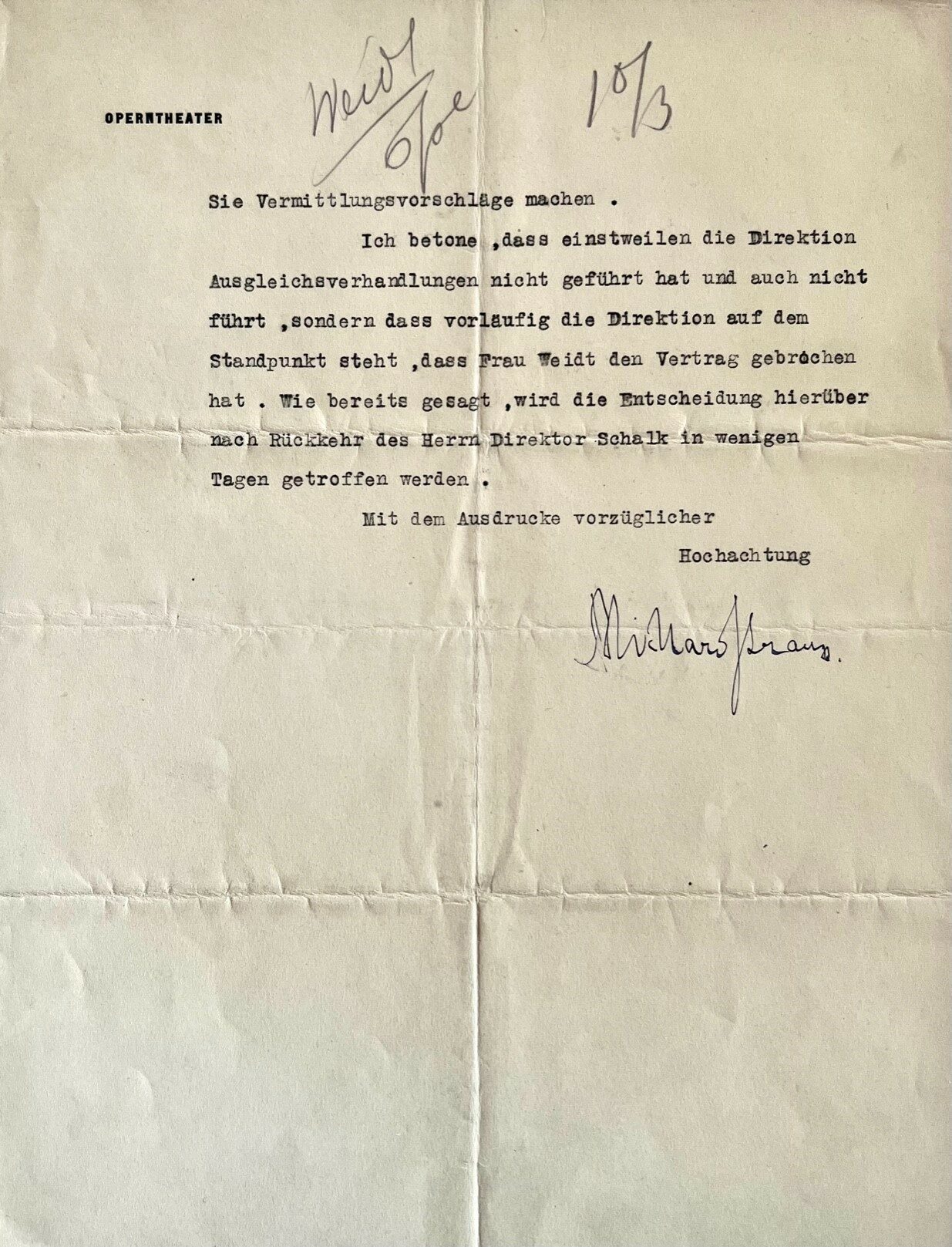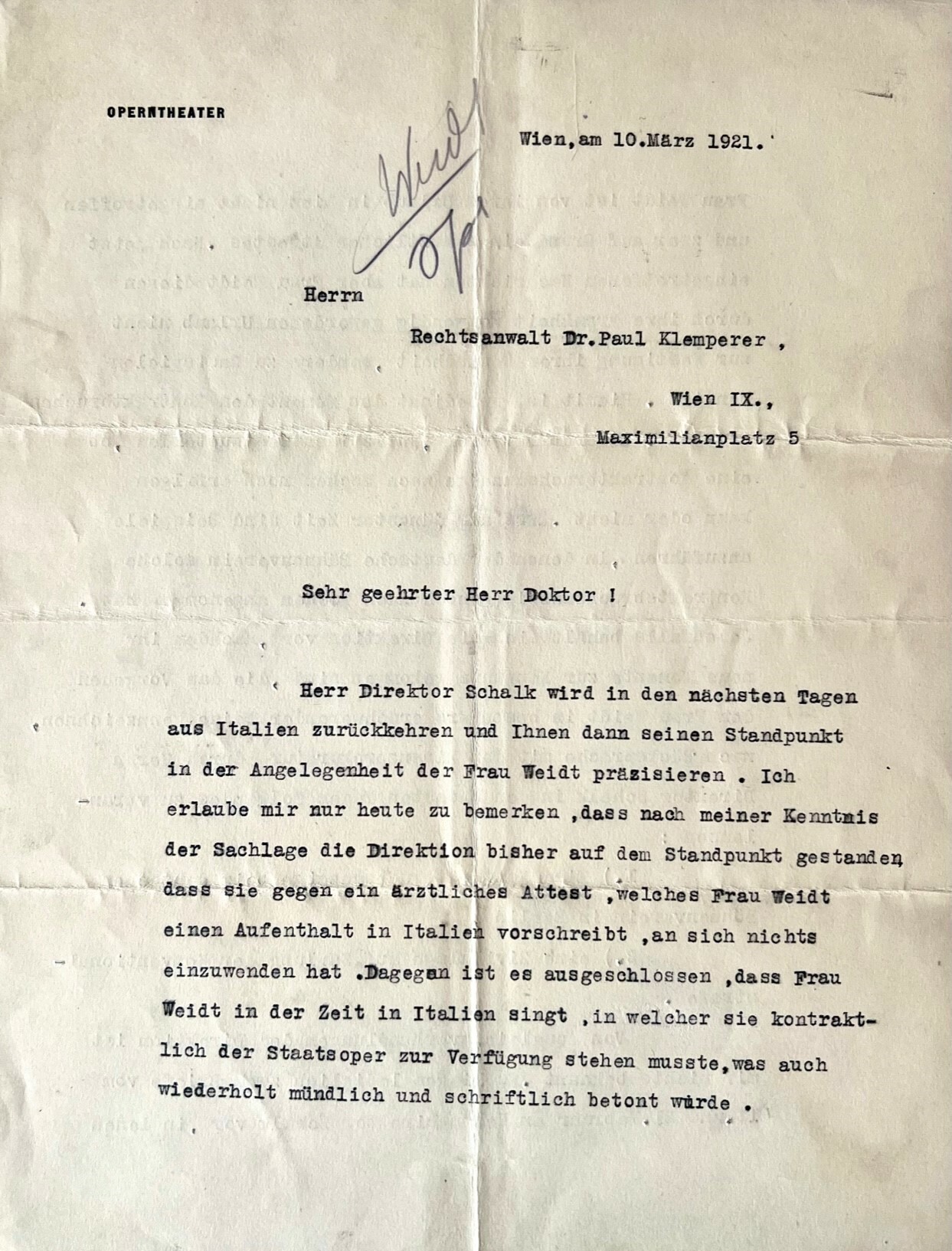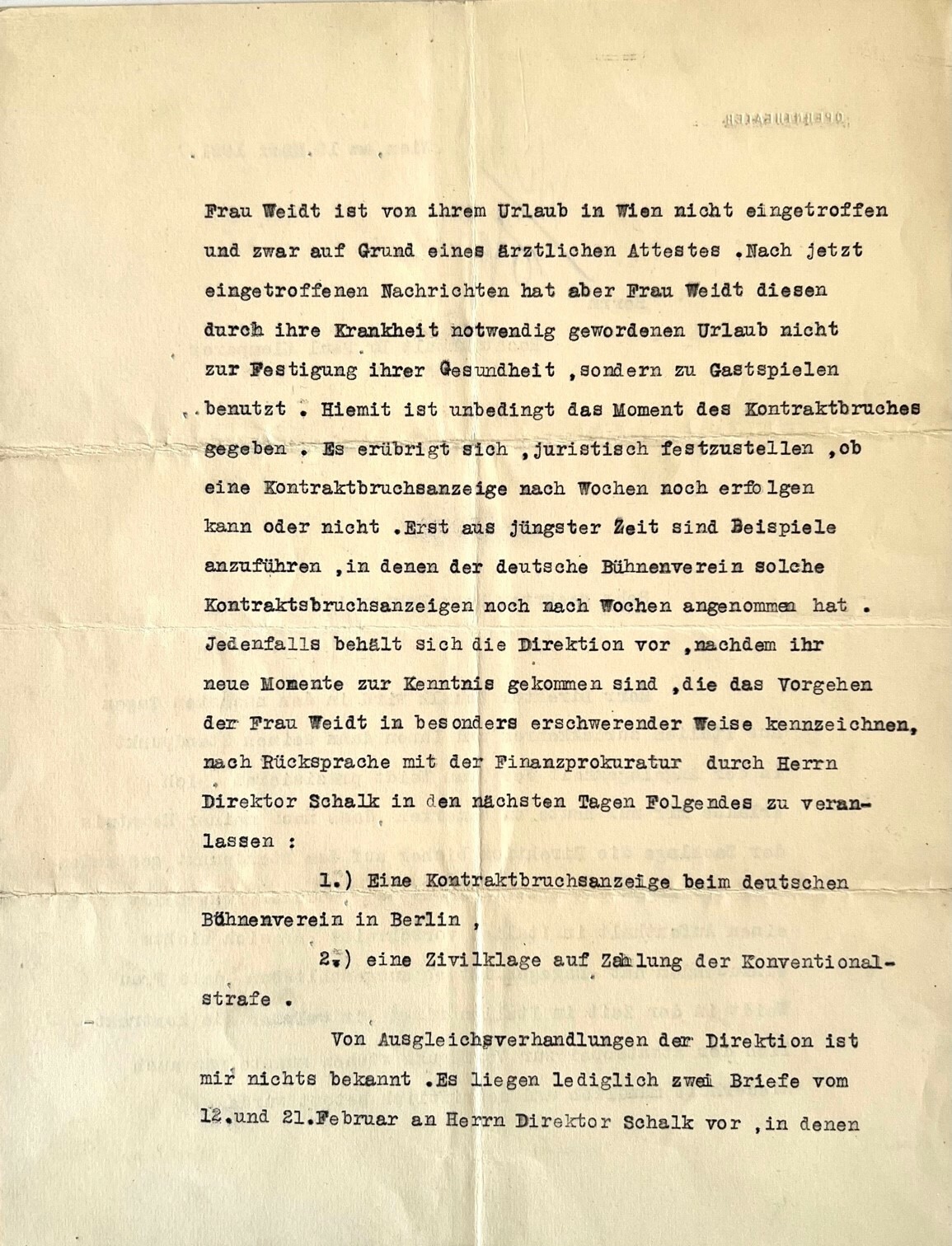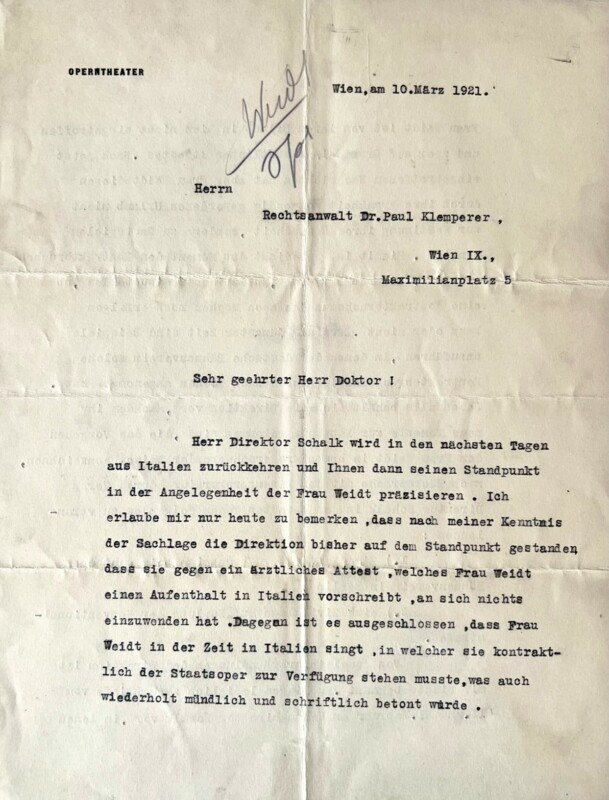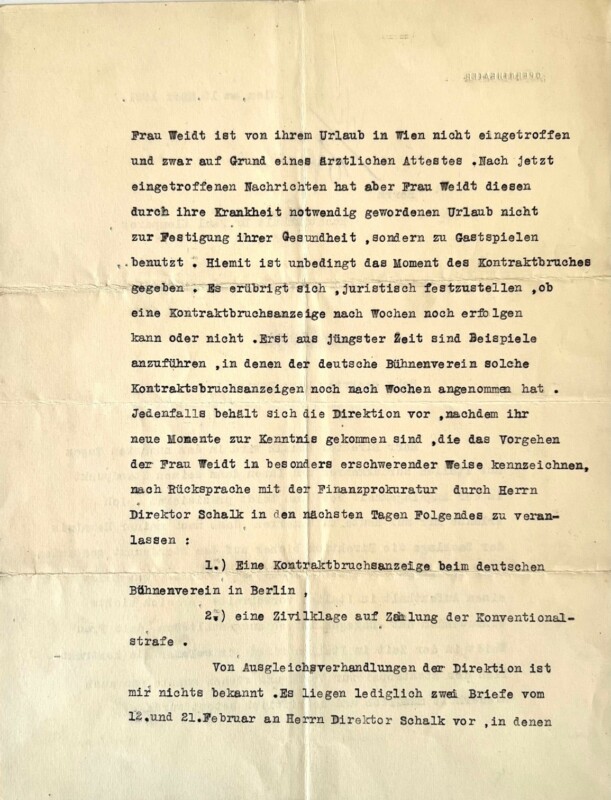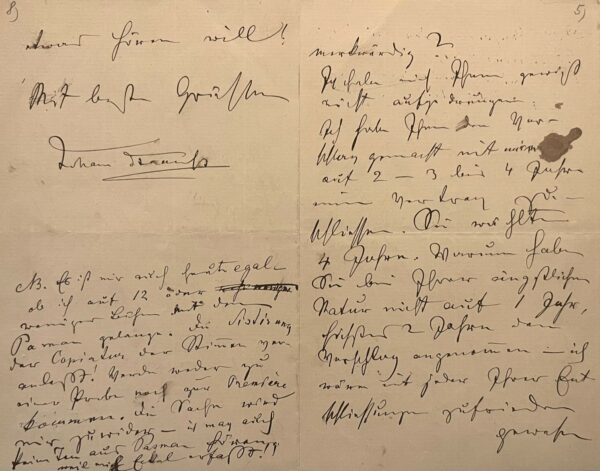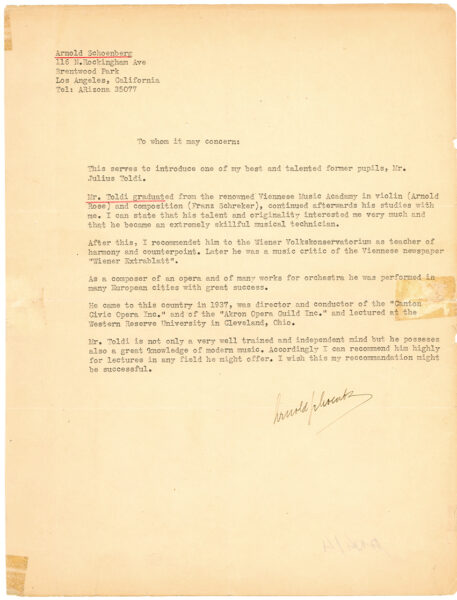Mrs. Weidt has not returned to Vienna from her vacation by reason of a physician’s note. According to recently received reports, Mrs. Weidt has not used her time off to recuperate, but rather to give guest performances. This most certainly constitutes a breach of contract. There is no need to establish legally whether a notice of breach of contract may still be given after several weeks, as there are several recent instances where the German Stage Association has accepted such Notices numerous weeks after the fact. After receiving intelligence of further occurrences, which document the actions of Mrs. Weidt in an especially aggravated fashion, and after conferring with the Finance Department, the management reserves the right to cause Director Schalk to take the following actions in the next few days:
1) Filing of a Notice of Breach of Contract with the German Stage Association in Berlin.
2) Filing of a lawsuit for payment of the contractual penalty.
I am not aware that the management engages in any settlement negotiations. There are merely two letters addressed to Director Schalk present, from the 12 and the 21 of February respectively, in which you propose to mediate.
I stress that at up to now the management has not conducted any settlement negotiations and is not involved in any at present, but rather for now the management takes the position that Mrs. Weidt breached her contract. As I mentioned above a decision in this matter will be taken by Director Schalk in a few days…”
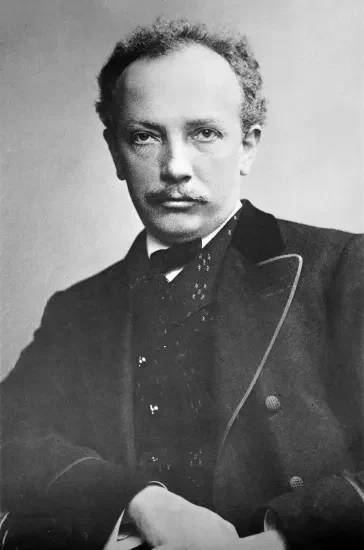
Richard Strauss
With a well-earned reputation as a composer and conductor, Strauss raised the expressiveness of the tone poem to new heights. Among his first works in this genre were Aus Italien, Macbeth, Don Juan, and Tod und Verklärung. After 1900, he turned his efforts to opera, producing such enduring works as Salome, Elektra and Der Rosenkavalier.
Austrian conductor Franz Schalk (1863-1931) famously directed the premiere of Anton Bruckner’s Symphony No. 5, Mahler’s Symphony No. 10 and Strauss’ opera Die Frau ohne Schatten; he co-directed the Vienna State Opera with Strauss from 1919 to 1924, a partnership that eventually prompted Strauss’ resignation.
Our letter regards the Vienna State Opera’s contract with German-Austrian soprano Lucie Weidt (1876-1940), where she performed from 1903-1926, creating the roles of Marschallin in Strauss’ Der Rosenkavalier and, in 1919, the nurse in his Die Drau ohne Schatten. However, she was best known for her Wagnerian roles, which she also performed in Munich, Milan, Buenos Aires, and New York.
Docketed in pencil in the upper margin of the first page with the name “Weidt.” Normal wear and in fine condition.

